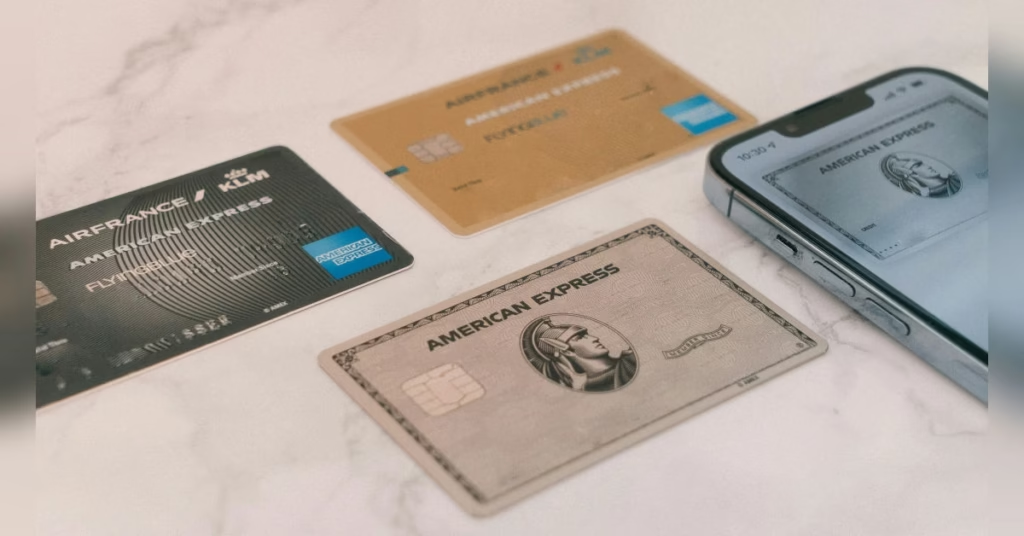Introduction
Budgeting is the foundation of financial stability, helping you control your money, reduce debt, and save for the future. Despite its importance, many people make mistakes that undermine their budgeting efforts. In 2025, with rising living costs, inflation, and unpredictable expenses, avoiding budgeting pitfalls is more crucial than ever. Learning from common mistakes can help you create a sustainable plan, maximize savings, and achieve financial freedom faster.
Related : Emergency Funds: Why You Need One and How to Build It
Table of Contents
Table of Contents
Why Budgeting Matters
A well-planned budget allows you to track income, control spending, and allocate funds toward goals such as an emergency fund, retirement savings, or a down payment for a home. According to a survey by the National Foundation for Credit Counseling, households that actively track their spending are 35% more likely to meet their financial goals. Budgeting also reduces financial stress, prevents unnecessary debt, and improves decision-making by giving you a clear picture of your finances.
Related : 10 Best Ways to Save Money Fast in 2025 and Beyond
Mistake 1: Not Tracking Your Expenses
One of the most common budgeting mistakes is failing to track daily expenses. Without accurate records, it’s impossible to know where your money goes, which often leads to overspending or neglecting essential costs. Many people underestimate small purchases like coffee, snacks, or subscriptions, which add up over time.
How to Avoid It
Use budgeting apps such as Mint, YNAB (You Need a Budget), or Personal Capital to monitor spending automatically. Categorize expenses into needs, wants, and savings to see exactly how money is being used. Even keeping a simple spreadsheet can make a huge difference. Regularly reviewing expenses helps you identify patterns, cut unnecessary costs, and stay on track.
Mistake 2: Ignoring Irregular or Annual Expenses
Many people budget only for monthly bills and overlook irregular expenses such as car maintenance, annual subscriptions, medical costs, or holiday spending. This oversight can cause unexpected financial strain when these costs appear.
How to Avoid It
Include a category in your budget for irregular or annual expenses. Calculate the yearly cost of these items, then divide by 12 to set aside a monthly amount. For example, if your car insurance is $1,200 per year, allocate $100 per month to cover it. Apps like PocketGuard or EveryDollar can help automate this process. This ensures that no expense catches you off guard.
Mistake 3: Not Prioritizing an Emergency Fund
Skipping an emergency fund is a critical mistake. Emergencies like medical bills, job loss, or urgent home repairs can quickly derail your financial plan. Without a safety net, people are forced to rely on high-interest credit cards or loans, creating further financial stress.
How to Avoid It
Set aside at least 3–6 months of living expenses in a separate, easily accessible high-yield savings account. Start small if needed, even $50–$100 per week. Automate contributions to ensure consistency. Treat your emergency fund as untouchable except for true emergencies. This provides peace of mind and prevents budgeting setbacks caused by unexpected costs.
Mistake 4: Setting Unrealistic Budgets
Many people fail at budgeting because they create plans that are too strict or unrealistic. Cutting too many expenses at once or setting unattainable savings goals can lead to frustration and early abandonment of the budget.
How to Avoid It
Create a budget that balances discipline with flexibility. Start with small, achievable goals and gradually increase savings or expense reductions. Use the 50/30/20 rule as a guideline: 50% for needs, 30% for wants, and 20% for savings and debt repayment. This approach makes it easier to stick to your plan long-term while still enjoying life.
Mistake 5: Forgetting to Account for Inflation
Inflation can erode purchasing power over time, yet many budgets fail to account for rising costs in groceries, utilities, rent, and healthcare. Ignoring inflation can make your budget outdated and ineffective, leading to shortfalls.
How to Avoid It
Adjust your budget periodically to reflect current prices and cost-of-living increases. Track your expenses monthly, and increase savings and allocations as needed. High-yield savings accounts, CDs, or money market accounts can also help your money grow slightly faster, offsetting inflation.
Mistake 6: Overspending on Wants
It’s easy to overspend on discretionary items like dining out, entertainment, and gadgets. Many people justify small splurges, but when repeated, these expenses can consume a large portion of the budget and prevent meeting financial goals.
How to Avoid It
Set clear limits for non-essential spending and track it closely. Use envelope budgeting or digital tools to allocate specific amounts for wants each month. Apps like YNAB or Goodbudget help manage discretionary spending effectively. Consider delayed gratification: wait 24–48 hours before making non-essential purchases to avoid impulse buys.
Mistake 7: Not Adjusting the Budget When Income Changes
People often create a budget based on current income but fail to update it when income increases or decreases. This can lead to overspending when income rises or stress when it drops unexpectedly.
How to Avoid It
Revisit your budget whenever your financial situation changes. Allocate additional income to savings, debt repayment, or investments rather than increasing spending automatically. If income decreases, prioritize essentials and reduce discretionary spending until the budget is balanced again.
Practical Tips for Effective Budgeting in 2025
- Automate Savings and Bill Payments: Automatic transfers to savings and timely bill payments prevent missed deadlines and late fees while growing your savings consistently.
- Use Financial Apps: Tools like Mint, Personal Capital, PocketGuard, and YNAB provide real-time tracking, expense categorization, and alerts for overspending.
- Review Weekly: Checking your budget weekly helps catch overspending early and keeps your financial goals in focus.
- Set Clear Goals: Allocate funds for short-term and long-term goals, such as emergency funds, vacations, debt repayment, and retirement. Goals provide motivation and structure.
- Include Buffer Funds: Always allow a small buffer in each category to accommodate unexpected minor expenses without breaking the budget.
Related : How to Create a Monthly Budget That Actually Works
Real-Life Example

Consider Emily, a 28-year-old professional living in New York. She initially failed to track her subscriptions and dining out expenses, leading to overspending. By using a budgeting app, automating her savings, and creating realistic spending limits, Emily built a $5,000 emergency fund in one year while consistently saving 20% of her income. Her success demonstrates that avoiding common budgeting mistakes and implementing practical strategies can lead to significant financial progress.
U.S.-Based Resources to Improve Budgeting
- NerdWallet Budgeting Tips – Guides on managing money and creating effective budgets.
- Consumer Financial Protection Bureau – Free resources for budgeting, saving, and debt management.
- Bankrate Budgeting Tools – Calculators and tips to create personalized budgets.
- Dave Ramsey – Strategies for budgeting, debt repayment, and financial planning.
- Mint by Intuit – Free app to track income, expenses, and budgets automatically.
Mistake 8: Relying Only on Cash Flow Without Tracking Net Worth
Many people budget solely based on monthly income and expenses but ignore their overall net worth, including assets, debts, and investments. This limited view can make it difficult to plan for long-term goals like retirement or buying a home.
How to Avoid It
Track your net worth regularly by listing all assets (savings, investments, property) and liabilities (debts, loans, credit cards). Use apps like Personal Capital to get a complete picture of your financial health. Incorporating net worth tracking into budgeting helps you make informed decisions and set realistic financial goals.
Mistake 9: Not Planning for Debt Repayment
Ignoring or underestimating debt obligations, such as credit cards, student loans, or personal loans, is a critical budgeting mistake. Failing to account for debt repayment can lead to high-interest costs and financial stress.
How to Avoid It
Include all debt payments in your monthly budget. Prioritize high-interest debt first using strategies like the avalanche method (paying the highest interest rate first) or the snowball method (paying the smallest balances first for motivation). Adjust your budget to allocate extra funds toward debt reduction when possible.
Mistake 10: Failing to Review and Adjust the Budget Regularly
A static budget can quickly become outdated due to changes in income, expenses, or financial goals. Without regular review, you may continue making errors and miss opportunities to improve your financial situation.
How to Avoid It
Review your budget at least monthly. Check for overspending, unexpected expenses, and changes in financial priorities. Adjust allocations for savings, debt repayment, and discretionary spending to keep your budget aligned with your goals.
Advanced Strategies for Successful Budgeting
- Automate Everything: Automate bill payments, savings, and debt repayments to reduce errors and ensure consistency.
- Use the 80/20 Rule: Allocate 80% of income to essentials and lifestyle, and 20% to savings and investments.
- Create Sinking Funds: Set aside money for planned future expenses like vacations, gifts, or large purchases to avoid disrupting the budget.
- Leverage Technology: Use apps with alerts and analytics to detect overspending trends and identify areas for improvement.
- Track Progress Visually: Charts and graphs help you see progress toward goals, increasing motivation to stay disciplined.
Long-Term Benefits of Avoiding Budgeting Mistakes
- Financial Stability: Consistent budgeting ensures you can handle emergencies, reduce debt, and maintain healthy savings.
- Reduced Stress: Knowing exactly where your money goes and having control over it lowers financial anxiety.
- Goal Achievement: Proper budgeting enables you to save for short-term and long-term goals like buying a home, traveling, or retirement.
- Better Spending Decisions: Tracking and reviewing expenses helps avoid impulse purchases and unnecessary debt.
- Increased Wealth: By avoiding mistakes and consistently saving, you can invest surplus funds, grow your net worth, and achieve financial independence.
FAQs
- What are the most common budgeting mistakes people make?
Common mistakes include not tracking expenses, ignoring irregular costs, overspending on wants, skipping an emergency fund, and failing to review the budget regularly. - How can I avoid overspending on discretionary items?
Set clear spending limits, track all expenses using apps like Mint or YNAB, and practice delayed gratification before making non-essential purchases. - Why is tracking irregular expenses important?
Ignoring irregular expenses like car maintenance, subscriptions, or medical bills can disrupt your budget. Planning for these ensures you’re prepared and prevents financial stress. - How much should I save for an emergency fund?
Experts recommend saving 3–6 months of living expenses in a separate high-yield savings account to handle unexpected costs. - How often should I review my budget?
Budgets should be reviewed at least monthly or whenever there’s a significant change in income, expenses, or financial goals. - What tools or apps help with budgeting?
Popular tools include Mint, YNAB (You Need a Budget), Personal Capital, PocketGuard, and EveryDollar, which help track income, expenses, savings, and debt. - What is the 50/30/20 rule for budgeting?
It’s a guideline allocating 50% of income to needs, 30% to wants, and 20% to savings and debt repayment, helping balance spending and saving effectively. - How can I stick to a realistic budget?
Start with small, achievable goals, adjust your allocations gradually, and automate savings and bill payments to maintain consistency. - Why should I track my net worth alongside my budget?
Tracking net worth gives a complete picture of assets and liabilities, helping you make better long-term financial decisions and plan for growth. - Can budgeting really help reduce financial stress?
Yes. A well-planned budget provides control over finances, prevents overspending, ensures savings for emergencies, and reduces anxiety about money management.
Explore Our Categories
Harsh Muchhal is a Software Engineer and Financial Analyst passionate about helping people understand the world of finance and technology in simple, practical ways. With experience in both software development and financial analysis, he blends technical knowledge with real-life money insights to make complex topics easy for everyone. Harsh shares valuable guides, tips, and updates on personal finance, investing, credit cards, and the latest tech innovations — helping readers make smarter choices in today’s fast-changing digital world.


Pingback: The 50/30/20 Rule: Does It Really Work? - MY FINTECH INSIGHT
Pingback: Best Credit Cards for Beginners in the USA - MY FINTECH INSIGHT
Pingback: Top Ways Millennials and Gen Z Are Saving Money in 2025 Without Cutting Lifestyle - MY FINTECH INSIGHT
Pingback: How to Improve Your Credit Score Quickly - MY FINTECH INSIGHT
Pingback: Personal Loans vs Credit Cards: Which is Better? - MY FINTECH INSIGHT